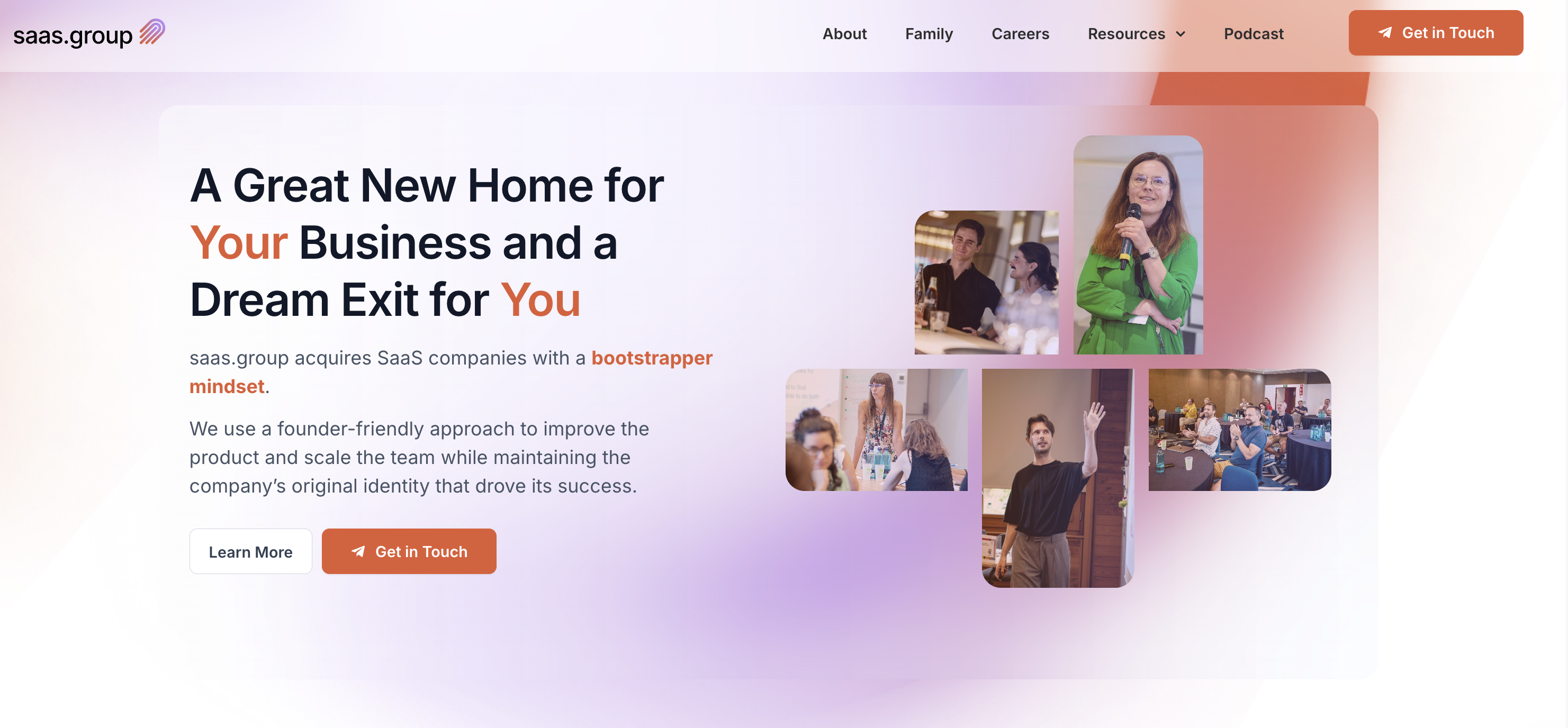We Make $60M/Year Acquiring And Scaling SaaS Companies
Who are you and what business did you start?
I'm Tim Schumacher, and I’m one of the founders of saas.group. We acquire and grow small to medium-sized SaaS (Software as a Service) companies. Our primary customers are actually the SaaS businesses themselves - we buy them, improve them, and scale them up.
What makes saas.group unique is our focus on the "middle market". We're not chasing unicorns or trying to build the next big thing from scratch. Instead, we look for solid, profitable SaaS businesses that are often overlooked by larger investors. These are typically companies doing anywhere from $2M to $10M in annual recurring revenue.
We also are very proud of being founder-friendly. That means we really try to accommodate every possible scenario a founder has for their exit. If the goal is to cash out and move on to the next product or just start spending more time with family, we don’t want to tie these people down with earnouts and make them stay with us even though they’re miserable. At the same time, if a founder feels like they’d like to still be growing their business with us with access to more resources and the help of a great community, we will draft the terms to make sure we work together successfully for years to come.
We focus on a sustainable approach for saas.group, as we do for all of our businesses, and always keep an eye on where we stand according to the Rule of 40%. That means we try to balance 20% growth and 20% profitability to make sure we’re aligned with our long-term goals.

How do you come up with the idea for saas.group?
The idea for saas.group evolved from a combination of experiences and observations. I’ve been investing for a while after my own exit from Sedo.com and always enjoyed the process. I was putting the money into companies I truly believed in. But with angel investments, you have a very limited say in what is actually happening there. I wanted to be more hands-on, to really steer these businesses towards success. At this moment I already knew I wasn’t a 0-to-1 kind of founder but rather enjoyed taking solid working businesses to the next level, bringing the operations up to speed, and finding potential for optimizing.
My “aha” moment really came when I received a proposal from a broker to acquire a SaaS business for just 4X EBITDA (Earnings Before Interest, Taxes, Depreciation, and Amortization). This valuation seemed extremely reasonable, especially when compared to the sky-high multiples you see for public SaaS companies or even real estate investments.

This is one of the first emails from that broker
That's when it clicked. There was this whole world of smaller SaaS businesses that weren't getting attention from big investors or private equity firms. They were too small for most institutional investors, but too big for individual entrepreneurs to easily acquire. This gap in the market presented a huge opportunity.
I realized I could combine my desire to be more hands-on with the opportunity to acquire these undervalued SaaS businesses. This...
Disclaimer: The initial draft of this article was compiled by the Starter Story team based on publicly available interviews, podcasts, and other content from the founder.










